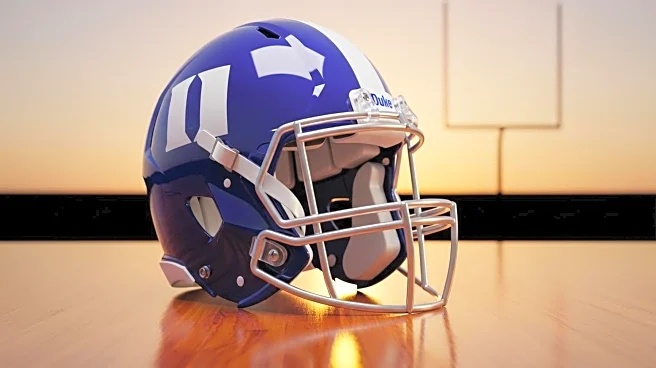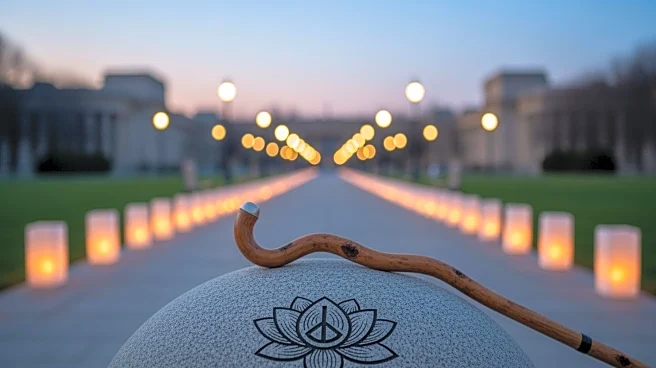What's Happening?
Darian Mensah, a prominent quarterback, has transferred from Tulane to Duke University, a move that underscores the evolving landscape of college football. The transfer was reportedly accompanied by a significant Name, Image, and Likeness (NIL) deal valued at $8 million over two years, although the exact figure remains disputed. According to The Athletic, while some involved in the negotiations confirm the $8 million figure, others suggest it is lower and heavily incentive-based. Despite the uncertainty over the exact amount, Mensah's deal places him among the top earners in college football, alongside players from Miami, Michigan, Oklahoma, and Penn State. The transfer has allowed Mensah to purchase a house, a Mercedes, and a Dodge Charger for his mother, as well as start a foundation for young athletes in his hometown.
Why It's Important?
This transfer highlights the significant impact of NIL deals on college sports, where athletes can now capitalize on their personal brand and marketability. The substantial financial incentives available through NIL agreements are reshaping recruitment strategies and player decisions, potentially altering the traditional dynamics of college sports. For universities, this means increased competition to attract top talent, not just through athletic programs but also through lucrative NIL opportunities. For athletes, it offers a chance to secure financial stability and invest in personal and community projects. This development could lead to a more commercialized college sports environment, with implications for the NCAA's regulatory framework and the balance between academics and athletics.
What's Next?
As NIL deals continue to grow in prominence, universities may need to develop more robust support systems to help athletes manage their newfound wealth and responsibilities. This could include financial literacy programs and legal advice to navigate complex contracts. Additionally, the NCAA may face pressure to further refine its NIL policies to ensure fair play and prevent potential abuses. Stakeholders, including university administrators, coaches, and athletes, will likely engage in ongoing discussions about the role of NIL in college sports and its long-term implications for the industry.
Beyond the Headlines
The rise of NIL deals raises ethical questions about the commercialization of college sports and the potential for exploitation of young athletes. There is also a cultural shift as athletes gain more autonomy and influence, challenging traditional power structures within collegiate athletics. This could lead to broader discussions about athlete rights and the role of education in the lives of student-athletes.








